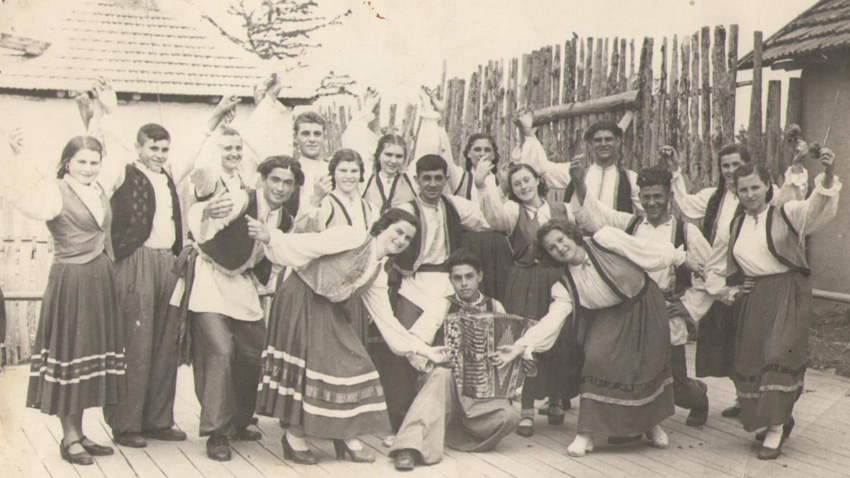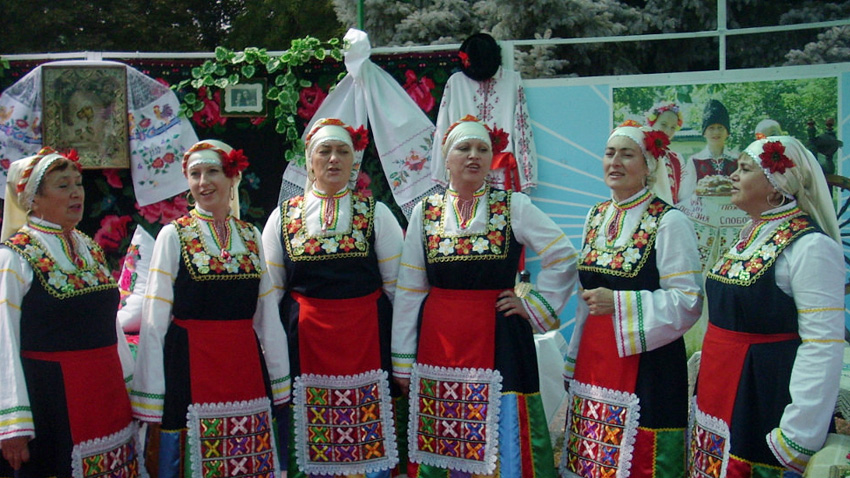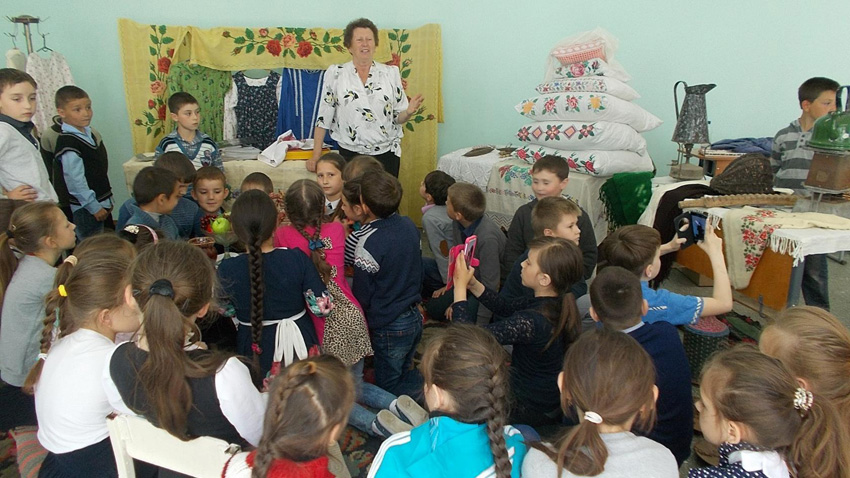I took a bite from a juicy and delicious piece of banitsa (cheese pastry) and realized how perfectly that traditional Bulgarian food was made in the village of Parcani (Moldova). Making banitsa here is a real art and part of the ritual to meet dear guests. Housewife Valentina Nikolaevna Obruchkova explains that when she makes banitsa she does not add any yeast to her dough. She only mixes flour, water and salt. Her pastry is very thin, almost transparent and one can easily read a newspaper when looking through that pastry. The pastry rises thanks to the eggs used in that recipe which are mixed with the cottage cheese to make the filling, Valentina further told Radio Bulgaria. She recalls her childhood when her mother used to make banitsa adding some lucky charms such as coins, bay leaves or sticks into it and each item was a symbol of something.

The Bulgarian history of the village of Parcani situated in the District of Transnistria began in the beginning of the 19th century when French governor Armand-Emmanuel du Plessis de Richelieu was appointed Governor-General of New-Russia. When Armand-Emmanuel du Plessis de Richelieu was crossing the uncultivated lands along Dniester’s bank he realized they were perfect for a new settlement and invited people from near and remote lands to settle there. As a result, citizens of Moldova, Ukraine, as well as Zaporozhian Cossacks arrived there. However, they did not stay there for too long. In 1806 the first Bulgarian colonists arrived in search of a better life in the area near Dniester River. This was the year when the Bulgarian village of Parcani was established. The name of that village is not Bulgarian. It has Ukrainian roots and means fence in that language.

The Bulgarians who settled in Parcani assimilated the rest of the people living in that village. Many Moldovans, Germans, Jews, Armenians and Belarussians also lived in Parcani, but their children somehow felt Bulgarian. During the latest census 80% of the local population, which amounted to 10,000 people, identified themselves as Bulgarians, Valentina Nikolaevna adds.
The population of Parcani village has been preserving for over 200 years the Bulgarian spirit and traditions. Their Bulgarian sounds archaic, although it was subject to some Russian influence. That is why that village attracts so many linguists and ethnologists. Teachers arrive from Bulgaria to teach the young people in Parcani modern Bulgarian.
The local cultural center does a lot to preserve the Bulgarian spirit. It helped for the third consecutive year the young people in Parcani organize the beautiful feast Megdan along Dniester’s bank. Many people from Ukraine, Bulgaria and Moldova also come here to take part at the event, Valentina Nikolaevna specifies. Valentina is a retired teacher who dedicated herself to the revival of the forgotten traditions. She has been collecting for years old items such as clothes or kitchen pots. Valentina has a large collection of wedding photos which traces the history of the wedding dress since the 1920s until the present. All items are kept at the history museum in Parcani which was founded at Valentina’s initiative. Unfortunately, that museum has not opened doors officially yet.

The wedding ceremony is among the well-preserved and interesting traditions of that village, which starts with an engagement of course. In Parcani the groom always gives the bride a tissue full of grain, which symbolizes fertility and prosperity. He also gives the bride a golden item, usually a cross, a ring or earrings, the retired teacher went on to say. I have seen on some old photos women wearing two crosses around their necks, says Valentina. Sometimes, the groom had to spend some time away from home after the engagement. Then, the bride would wear her cross and the groom’s cross. She would go out and dance a horo chain dance, but the two crosses on her neck meant she was not free. On the wedding day relatives gather both at the bride’s and the groom’s houses. At 4 or 5 am a group of women goes uphill starts singing the song Izgryalo e Yasno Slantse (The sun is rising), thus begging the sun to give the young family a happy life.
Another interesting ancient ritual is the hand-kissing. It is performed when the groom takes the bride at his place. The young couple goes round the guests’ table. The groom shakes hands with the guests first, followed by the bride. The guests give the bride a small amount of money as a sign of approval, thus recognizing her as the future housewife.
English version: Kostadin Atanasov
From February 14 to 16, an event under the motto "Love and Wine" will allow Sofia residents and guests of the city to combine the Bulgarian holiday of wine Trifon Zarezan with Valentine's Day. It will be held on the pedestrian zone..
World Radio Day - 13 February, this year is dedicated to climate change. The choice is no coincidence—2025 has been identified by the Paris Agreement as a crucial year for humanity to achieve its long-term goal of limiting global warming to a maximum of..
“On 13 February this year, Bulgarian consumers must not shop at any of the grocery stores, at any of the chain stores, at any of the supermarkets! On 13 February grocery stores must be left empty, with not a single buyer in them,” the organizers..
Exactly a month after the Bulgarian National Radio solemnly celebrated its 90th anniversary, history continues its dialogue with us, its authors. With a..

+359 2 9336 661
